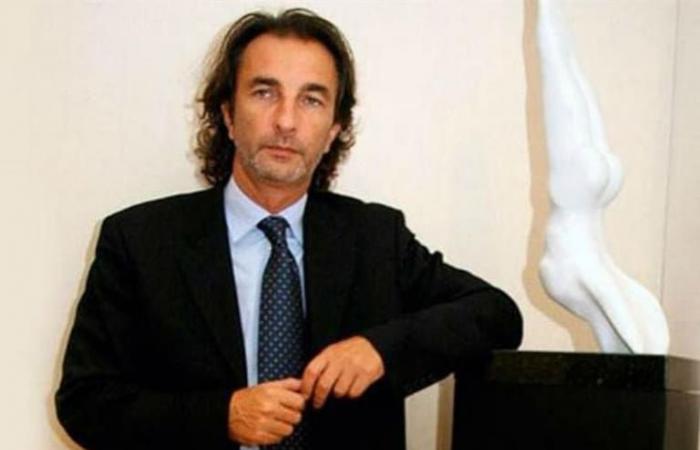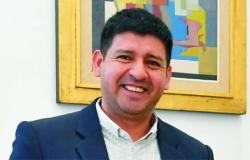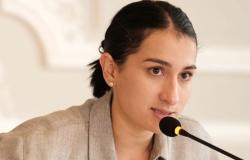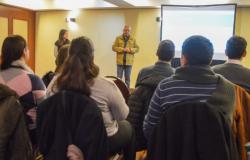
Hear
The prosecutor before the Chamber of Cassation, Raúl Pleé, and the Financial Information Unit (UIF), which is the body in charge of investigating cases of money laundering, are currently analyzing the appeal of the ruling of the Court of Cassation that allowed the construction businessman Angelo Calcaterra, cousin of Mauricio Macri, go to oral and public trial in the case of “the bribe notebooks” considering that the payments he made to former Kirchner officials were campaign contributions and not bribes.
The idea is that its resources allow the Supreme Court of Justice to review the decision of the judges of the Chamber of Cassation Diego Barroetaveña, Carlos Mahiques and Daniel Petrone to consider that in the case of Calcaterra its payments must be analyzed by the federal judge with electoral jurisdiction Maria Servini, and not by the federal oral court that will judge other businessmen, to Cristina Kirchner and its former officials as part of an organization that received and collected bribes in exchange for maintaining contracts with the State.
Pleé and the FIU have a period of ten business days to file an appeal against this decision, which expires on July 12, in the middle of the judicial process, so the period is extended to Monday, July 29.
Calcaterra was the owner of the Iecsa company dedicated to carrying out public works during Krichnerism. In another parallel case, the firm is being investigated for paying bribes to maintain the contract for the Sarmiento Railway sorting work. In 2017, Calcaterra sold to Marcelo Mindilin of Pampa Energía the company, but the investigations against Calcaterra remain open.
About 24 hours before benefiting Calcaterra, the judges also decided to open the businessmen’s complaint appeal Hugo Dragonetti, Armando Loson and Joreg Balanwho raised the same argument: that the payments they made to officials of the Ministry of Federal Planning were a request for funds to finance the electoral campaign.
If these appeals are successful, which must be processed in the Chamber with public hearings where the parties present their arguments, these executives would also avoid the oral trial, in a sequence that could reach other businessmen who have supported the same line of defense.
Appealing the ruling of the Cassation requires a political decision, but also a refined legal technique. Only appeals that raise a federal issue are successful. In principle, the Court hardly opens an extraordinary appeal on jurisdiction issues. And in this case the accusation is not deprived of federal jurisdiction, because the Cassation established that the jurisdiction lies with the electoral justice, which is federal.
At the FIU they are analyzing the resolution and are not satisfied with the ruling, but they are studying whether there is any real possibility that the extraordinary appeal will succeed. Surely the Cassation will respond that it is not admissible, that there is no federal issue or irreparable burden. The only way forward is to file a complaint with the Court, which the Court of Cassation will find difficult to open when it understands that there is no federal case. “It is an issue of certain procedural complexity to be successful in the case,” said a judicial source.
Prosecutor Pleé’s position on whether the case should go to electoral justice is no secret. He has already argued that the 16 payments that Calcaterra made in the Hilton Hotel garage and in his company should not be considered campaign contributions, regardless of what the defendant says. When the incident of jurisdiction between judges Barroetaveña, Petrone and Mahiques was processed, Pleé presented a brief in which he opposed the case passing into the hands of the electoral judge Maria Servini.
“The appeal is an attempt by the defense to avoid the trial and validate its factual hypothesis in the form of a jurisdiction issue.” said Pleé and with a premonitory look at what would happen, he pointed out on April 18 that a Cassation ruling in favor of Calcaterra would be a sentence “seriously arbitrary and of unusual institutional gravity.”
The prosecutor maintained that the complaint appeals to Cassation to try to get the case out of the oral court were inadmissible. On that occasion Pleé recalled that “it is the criterion of all the Chambers of this Chamber [de Casación] that the resolutions that decide on issues of jurisdiction are not, in principle, reviewable in the instance.” And he pointed out that the proposal is not made against a final sentence.
Pleé recalled another argument that draws attention to the Cassation ruling that avoided Calcaterra’s trial. The case has already gone through the investigation stage, the prosecutions of the accused were confirmed by the Federal Chamber, the case was brought to trial, with a tax accusation and the oral debate is in the preparation stage.
Furthermore, for Pleé, it is clear that the tax accusation “is based on the fact that Calcaterra and Sánchez Caballero made sixteen alleged payments on behalf of the company IECSA and ODS SA to national officials, in order to obtain agreed benefits within the framework of an agreed venal pact. between the aforementioned businessmen and the members of the criminal association.”
“Promptly, The accusation indicates that, according to the evidence gathered in the process, the payments were made in accordance with contractual agreements that the companies in their group had with the National State.l,” the prosecutor wrote.
Pleé thus described the maneuver of raising incompetence, as a way of sending the case to the electoral justice system in order to achieve in this way what must be defined in the oral trial, that is, whether the payments were bribes or campaign contributions. Specifically, he wrote: “It is a sneaky attempt to assert the defense’s factual hypothesis outside of the oral and public trial.”
Calcaterra’s defense mentioned that the judge Julian Ercolini [sucesor de Claudio Bonadio en la causa tras su fallecimiento] had sent the businessmen’s cases to the electoral justice Hugo Eurnekián, Alejandro Ivanisecich and Manuel Santos Uribelarrea who claimed to have made campaign contributions.
But Pleé said that these cases are different from Calcaterra, to the point that even prosecutor Carlos Stornelli agreed. These are cases where the payments of Hugo Eurnekián, Alejandro Ivanisecich and Manuel Santos Uribelarrea were not related to public works contracts.
“Although the defense’s factual hypothesis is that the payments made by Calcaterra and Sánchez Caballero also had no connection with public procurement, the truth is that, we insist, the request for submission to trial maintains the opposite, and this will be the subject of the trial. to be realized” said Pleé. In short, it is in the oral trial where the objective of those 16 payments should be established, whether they were bribes or illegal and unregistered campaign contributions.
The case of the bribery notebooks began with a newspaper investigation THE NATION which revealed the notes of Oscar Centeno, former driver of the Ministry of Federal Planning, about his time at official offices and companies to take and bring bribes. In some cases, Their trips ended in Cristina Kirchner’s apartment, in Recoleta.where according to the testimonies, the bags were received by his secretary, the deceased Daniel Muñoz. At the time, Justice detected the former Kirchner secretary with more than 110 properties in Argentina and about US$70 million in real estate in the United States. If the money came from those bags, it was not allocated to any campaign.
Cristina Kirchner is accused of 27 acts of bribery and as the head of an illicit association. Along with her, the main defendants are the former officials From Vido, Baratta, José López and the driver Centeno, the financier Ernesto Clarens and businessmen Calcaterra, Carlos Wagner (former head of the Argentine Chamber of Construction) and Nestor Otero (the concessionaire of the Retiro bus station), among others, more than 161 defendants.





